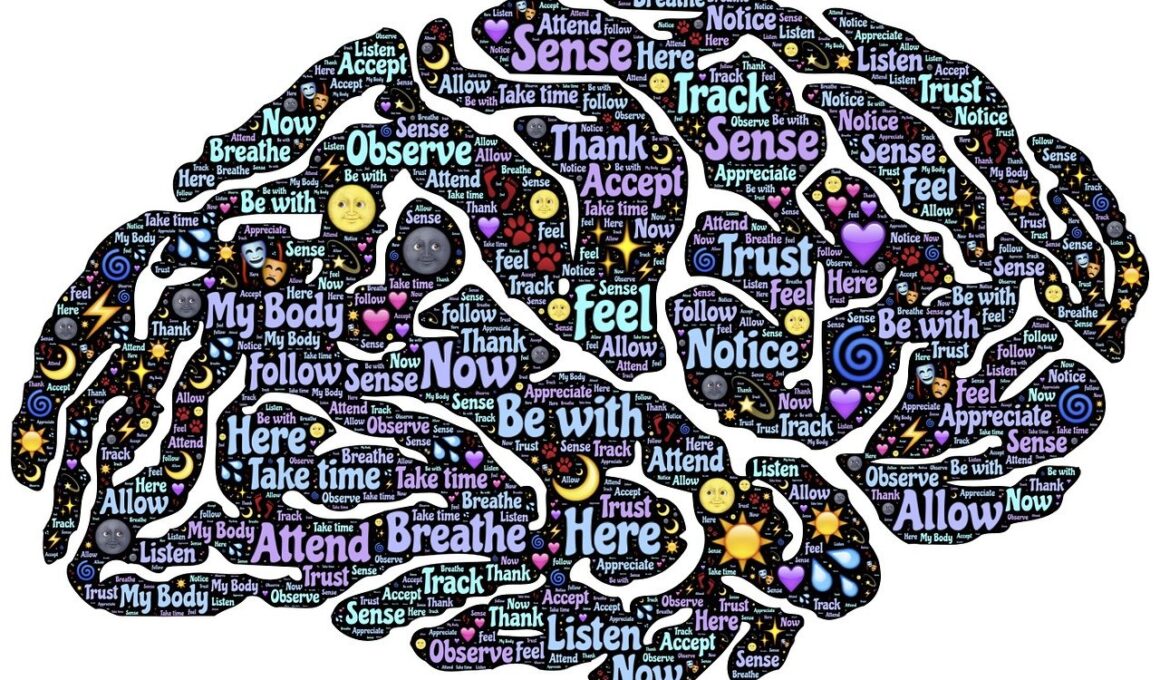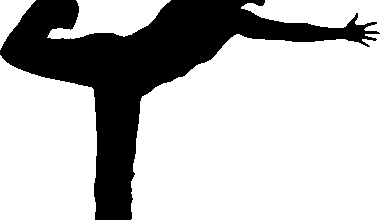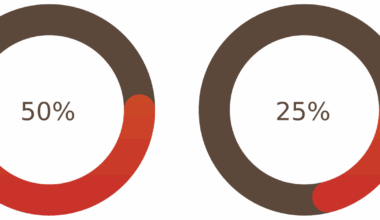Integrative Approaches to Overcoming Fatigue Through Mind-Body Therapies
Fatigue can deeply affect daily living, impacting physical energy and mental clarity. Many individuals suffering from chronic fatigue seek solutions that transcend conventional medicine. Integrative medicine focuses on the whole person, emphasizing the connection between mind and body. Therapies such as yoga, meditation, and acupuncture help restore equilibrium and enhance vitality. The mind-body connection underscores how emotional states can influence physical health. Chronic stress sometimes exacerbates fatigue by unbalancing the body’s natural energy systems. This interplay illuminates the need for a comprehensive approach, incorporating diverse modalities that foster overall well-being. By engaging both the mind and body, patients can ignite their healing potential. Exploring various practices empowers individuals to select therapies that resonate with their unique experiences. This shift from crisis management to proactive lifestyle changes can dramatically improve energy levels. Ultimately, adopting integrative strategies invites a sense of control and empowerment over one’s well-being. It’s crucial to consult with healthcare professionals knowledgeable in both conventional and complementary therapies to craft personalized plans for overcoming fatigue effectively. Embracing diversity in treatment options enhances the potential for reclaiming vitality and joy in life.
The Role of Yoga in Energizing the Body and Mind
Yoga serves as a powerful tool in the realm of mind-body therapies, offering physical and mental rejuvenation. This ancient practice encompasses a series of postures, breathing techniques, and meditation aimed at harmonizing internal systems. Through focused movements, yoga enhances flexibility, balance, and strength, contributing to lower fatigue levels. Moreover, the mindful aspect of yoga cultivates relaxation and reduces stress, further alleviating energy drain. Practicing yoga regularly encourages individuals to connect with their bodies and breathe consciously, fostering awareness of energy centers. Many practitioners report heightened energy levels and improved concentration after integrating yoga into their routines. Yoga classes often provide supportive community environments that enhance motivation and accountability. Individuals affected by fatigue may find solace in group classes, enabling connections with others facing similar challenges. Furthermore, specialized courses for fatigue management specifically address participants’ needs. Participant outcomes suggest reduced fatigue and improved quality of life through consistent practice. Additionally, accessible online platforms offer yoga sessions, making it easier for individuals to engage safely at their own pace. This adaptability makes yoga a valuable option for those navigating fatigue, promoting empowerment, health, and holistic well-being.
Meditation serves as another vital component, aiding in the reduction of fatigue significantly. Through practices like mindfulness meditation, individuals can effectively manage stress and enhance mental clarity. This ancient discipline facilitates a profound connection between mind and body, making it instrumental in combatting fatigue. Regular meditation encourages deep relaxation, providing respite from daily stressors that often contribute to fatigue. Engaging in guided visualization or loving-kindness meditation empowers participants to foster a more positive mental space. Scientific research shows that consistent meditation practice alters brain patterns, promoting emotional resilience and well-being. Enhanced focus and clarity emerge from the stillness cultivated during meditation, which can mitigate the overwhelming feeling of exhaustion. Furthermore, creating a designated space for meditation can amplify its efficacy, allowing space for reflection and tranquility. Individuals can explore various techniques to find the approach that resonates, whether it’s breath-focused or mantra-based. Many people find meditation accessible, as it can be practiced anywhere, requiring minimal time. Consequently, integrating meditation into daily routines may offer quick refreshment during work or life’s demands. This simple practice offers significant benefits, contributing to a balanced lifestyle, ultimately reducing fatigue while promoting emotional well-being.
Acupuncture as a Complementary Therapy for Fatigue
Acupuncture functionally addresses fatigue through the principles of traditional Chinese medicine. By stimulating specific points on the body, this therapy promotes energy flow, alleviating blockages that lead to fatigue. Chronic fatigue conditions often stem from imbalances in the body’s energy system, and acupuncture works to restore harmony. Many individuals seeking relief from fatigue turn to acupuncture not only for its physical benefits but also for the holistic approach it offers. Research supports acupuncture’s efficacy in reducing chronic fatigue symptoms and improving overall wellness. The treatment process fosters a sense of relaxation, reducing anxiety that contributes to energy depletion. Patients frequently report feeling revitalized and more focused after sessions, affirming the therapy’s impact. Incorporating acupuncture into comprehensive fatigue management plans yields notable results, especially when combined with other forms of mind-body therapy. Working alongside healthcare practitioners ensures acupuncture is integrated as part of a broader strategy. The safety and minimal side effects associated with acupuncture make it an appealing option for those exploring natural therapies. Acupuncture also invites individuals into a deeper dialogue with their bodies, enhancing awareness of what they need to thrive.
Herbal medicine is increasingly recognized as a supportive measure in addressing fatigue. Integrative medicine emphasizes the utilization of natural resources to foster well-being, and many herbs possess energizing properties. Adaptogens such as Rhodiola rosea and Ginseng are celebrated for their ability to improve energy levels and enhance resilience. Through a deeper understanding of herbal properties, individuals can select the best-fit herbs for personal fatigue challenges. Furthermore, consulting with trained herbalists or integrative practitioners ensures appropriate use and dosage for safety and effectiveness. The personalized nature of herbal medicine aligns seamlessly with the holistic framework sought in integrative approaches. A comprehensive strategy may include lifestyle changes alongside herbal remedies—elements like a personally tailored diet and hydration will complement herbal supplementation. Additionally, adopting practices such as focused breathing or gentle exercise can amplify the effects of herbal interventions. Individuals engaging in a wider wellness strategy often discover exciting insights about their own health patterns and behaviors. Embracing herbal supplements not only addresses fatigue but also can nurture emotional balance, leading to a greater quality of life. Exploring this rich tradition allows individuals to weave in additional layers of support to their healing journeys.
The Importance of Nutrition in Combating Fatigue
Nutrition plays a vital role in mitigating fatigue, as the body requires essential nutrients for optimal energy function. A balanced diet can significantly reduce fatigue levels, providing sustained energy throughout the day. Incorporating whole foods, rich in vitamins, minerals, and healthy fats is foundational to maintaining energy reserves. Particularly, foods high in antioxidants support better cellular function, minimizing oxidative stress, a contributor to fatigue. Nutrition that prioritizes complex carbohydrates forms a crucial component of energy production, promoting steady glucose levels. Regular meals and snacks rich in protein effectively repair and rebuild muscle tissues, fostering resilience against fatigue. Hydration must not be overlooked, as even mild dehydration can lead to feelings of exhaustion. Simple dietary adjustments, such as integrating nutrient-rich smoothies or whole grains, can dynamically enhance energy levels. Moreover, mindful eating encourages awareness of the body’s signals, promoting appropriate nourishment choices. Consulting with nutritionists can further personalize dietary strategies to address specific fatigue challenges. By recognizing the interplay between nutrition and energy levels, individuals can make informed choices that support a holistic approach to health and well-being. Additionally, collective nutritional adjustments foster a sense of community and shared learning.
Lastly, integrating lifestyle changes offers a comprehensive strategy for managing fatigue effectively. Enhancements such as regular exercise, adequate sleep, and stress management tools create a robust foundation for overall health. Engaging in physical activity releases endorphins, which improve mood and energy levels. The importance of sleep cannot be overstated, as restorative sleep is essential for rejuvenating the body and mind. Developing a consistent sleep routine and environment optimizing rest can significantly influence energy levels. Moreover, stress management techniques, including time management and setting healthy boundaries, reduce overwhelm, preventing fatigue from creeping back. Mindful practices that cultivate emotional resilience, such as journaling or soft hobbies, also contribute to overall well-being. Taking time for oneself is crucial in balancing the demands of modern life. By adopting a holistic view of fatigue and addressing these interconnected areas, individuals empower themselves on a path to greater vitality and balance. Consulting healthcare professionals can ensure effective integration of these strategies for customized care. Ultimately, weaving together diverse components enhances overall effectiveness in combating fatigue, empowering individuals to reclaim energy and vitality in their daily lives.


